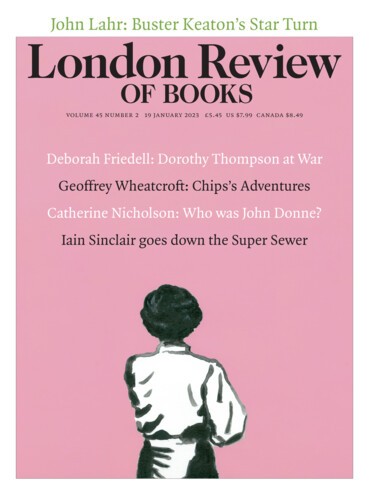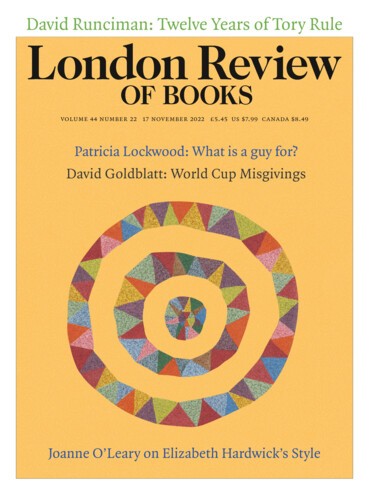You can’t escape the heat by dodging between patches of shade. It’s more a case of driving between climate-controlled buildings, and better not to move around at all. Around the Persian Gulf, fifty-degree days are no longer aberrations. In Iraq and Kuwait they have become routine.
Tom Stevenson
Tom Stevenson is a contributing editor at the LRB. His collection of essays, Someone Else’s Empire: British Illusions and American Hegemony, many of which first appeared in the paper, was published in 2023.
There is a tendency to view the UK-Saudi relationship in purely commercial terms, as though arms industry profits were the main point. Orders from Saudi Arabia are some of the most significant for British weapons manufacturers. But they do not account for the vehemence of the British commitment to the war in Yemen. The enthusiastic support British politicians have for Saudi Arabia and the other Gulf monarchies suggests more than an amoral exercise in profit-seeking.
Friends with Benefits: The Five Eyes
Tom Stevenson, 19 January 2023
An NSA analyst sitting in an office in Fort Meade, Maryland, receives signals from radio interception antennae in Tangimoana and taps on subsea internet cables on the bed of the Sea of Okhotsk. The system collects a massive volume of information: phone calls, satellite communications, emails, internet traffic, webcam images, billions of mobile phone location records and tens of billions of text messages every day. This global data collection wouldn’t be possible without the collaboration of the state intelligence agencies of Britain, Canada, Australia and New Zealand. The Five Eyes members share listening posts and much of the signals intelligence they collect. A reader of a Five Eyes brief may not know which state has collected the information they’re looking at without consulting the technical data. The NSA is by far the most powerful signals intelligence agency in the world, but global surveillance is a shared effort of the Anglosphere.
The Revolutionary Decade: Tunisia since the Coup
Tom Stevenson, 17 November 2022
Until recently Tunisia was seen as the lone success story of the Arab Spring. But on 25 July last year, President Kais Saied summoned the prime minister to the presidential palace in Carthage and dismissed him, declared a state of emergency, suspended parliament and sent the army to block the entrances to the building. Over the next 48 hours, a nationwide curfew was imposed, the head of the...
Assad’s Fall
Tom Stevenson, 26 December 2024
The Syrian civil war lasted twelve long years, but ended in twelve days. The speed of the rebel advance that brought down the regime of Bashar al-Assad was remarkable. On 27 November, the coalition of opposition forces based in Idlib province and known as Hayat Tahrir al-Sham (HTS) announced their first major operation for years. Within days they had swept through Aleppo, Hama and Homs,...
Podcasts & Videos
Weapons of War
Tom Stevenson and Thomas Jones
Tom Stevenson talks to Thomas Jones about the situation in Ukraine, the effectiveness of some of the weapons in use, from anti-tank missiles to economic sanctions, and the risk of nuclear escalation.
Read anywhere with the London Review of Books app, available now from the App Store for Apple devices, Google Play for Android devices and Amazon for your Kindle Fire.
Sign up to our newsletter
For highlights from the latest issue, our archive and the blog, as well as news, events and exclusive promotions.




